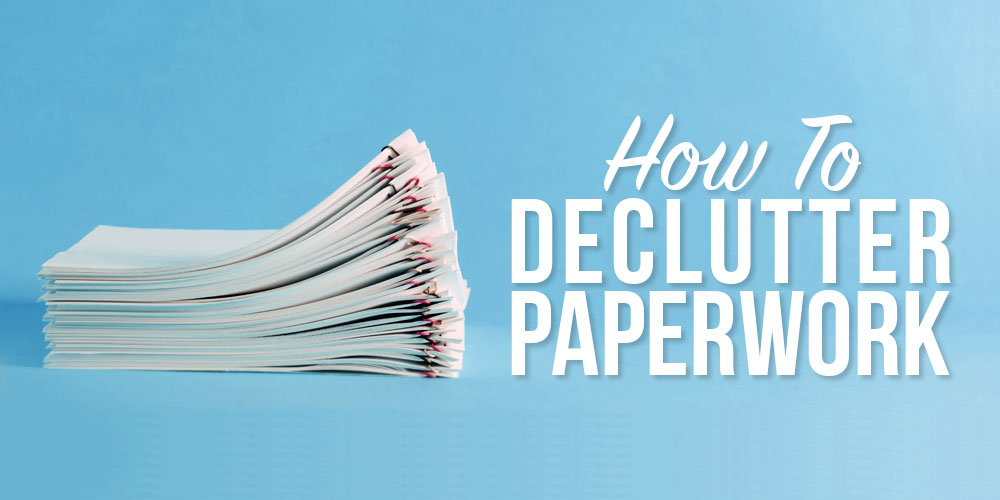
NAVIGATION
Decluttering paperwork is vital to maintaining a clean home and office space. It’s easy to get in the rhythm of throwing documents in a huge pile on your desk where they will sit forevermore. However, if you have a system in place, you can purge that pile of paper clutter and have clean, spacious desks and drawers in no time!

Hi, I’m Ryan
In our hyper-digital age, I try to be very strategic with the paper copies I keep to prevent mounds of paper clutter. After a decade of organizing small spaces, I have my system down pat!

How To Declutter Your Paperwork In Five Quick Steps

Establishing a clear-cut system for decluttering paperwork and organizing paper files can be a game changer. It may take a little bit more grunt work on the front end, but the papercuts will be worth it when you can enjoy a more organized home or office, with strategies that’ll keep it that way in the long run.
Declutter Paper Clutter Into Four Piles

Go through all of the papers sitting in the piles on your desk, tabletops, file cabinets, and other little piles you’ve collected around the house and sort each piece into one of these four categories.
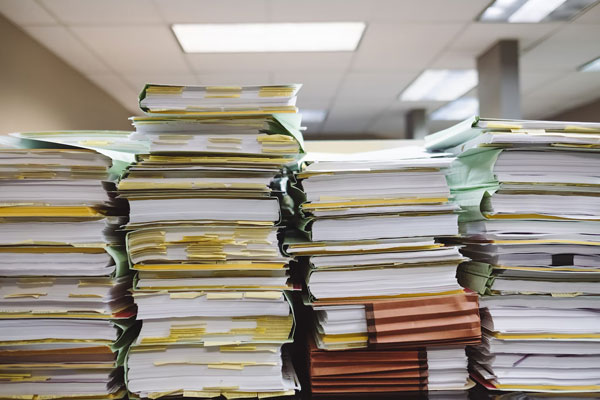
Four Steps To Declutter Paperwork
- KeepReserve the keep pile for paper files that you need to keep actively accessible. This might include things like medical information and vaccination records, or personal documents like your birth certificate, social security card, or marriage certificate.
- RecycleThe recycle pile should be used for any paper clutter that can go directly into the recycle bin without any hesitation. This would include old magazines, junk mail, advertisements, grocery receipts, and other paper clutter without any directly identifiable information on it.
- ShredUse the shred pile for any documents you don’t need any more but want to keep out of the hands of strangers. I usually put anything with my personal information in this category, like past insurance documents, tax documents that are five or more years old, or any bills and statements from utility companies, banks, medical groups, and things of that nature.
- StorageLastly, the storage file is for any documents that you don’t think you’ll need often, but want to keep for the rare times that you do need them. This could include the past five years of your tax records, medical or family history, or old bills and important receipts.
Discard Unnecessary Paper Clutter

After you’ve sorted all of your paperwork into these four categories, go ahead and recycle and shred the paperwork in those two categories. After doing this, you should only be left with the documents you plan to keep and store.
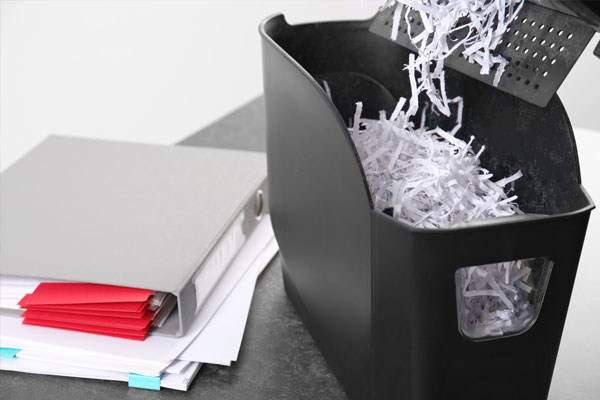 If you don’t own a paper shredder, there are several quality paper shredders you can snatch up on Amazon that should do the trick. There are also several postage stores that have in-house paper shredding services like FedEx, The UPS store, and Office Depot.
If you don’t own a paper shredder, there are several quality paper shredders you can snatch up on Amazon that should do the trick. There are also several postage stores that have in-house paper shredding services like FedEx, The UPS store, and Office Depot.
Once you’ve shredded all of those sensitive documents, don’t just pitch it in the dumpster. Shredded paper can be easily recycled, great for compost, re-used as packing material and even used as animal bedding or litter (providing no staples or non-paper bits made it into the mix).
Decide Which Documents To Store Digitally

In our modern era, the hassle of paper clutter can be greatly reduced with digital storage. After getting rid of the documents you don’t need, take inventory of which papers you have left and decide which documents you need physical copies of, and which documents you can store digitally instead.
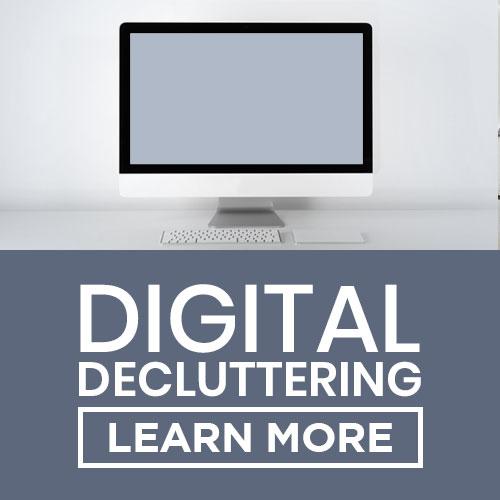 There are many options out there that allow you to cut paper clutter and go virtual. Information related to your license, home mortgage, banking statements, and bills can often be found online through virtual accounts. However, I never like to rely solely on a third party to keep my information. I like my most important documents in multiple digital storage spaces.
There are many options out there that allow you to cut paper clutter and go virtual. Information related to your license, home mortgage, banking statements, and bills can often be found online through virtual accounts. However, I never like to rely solely on a third party to keep my information. I like my most important documents in multiple digital storage spaces.
My fear whenever I decide to store files online, on hardware, or in the cloud is that I’ll run into a technical error and lose my files. My personal solution to this is to store files in a least three key places like a hard drive, a cloud service, and my laptop itself. This way, I feel secure in knowing if I have an issue somewhere, I won’t lose everything at once.
As a guy who tries to keep as much clutter out of his life as possible, storing important documents digitally still feels more satisfying and functional for my life than keeping hundreds, if not thousands, of papers in my tiny home office.
However, I definitely understand the appeal of keeping some hard copies in case something goes wrong in cyber-land. I store a lot of documents virtually, but there are still certain high-priority personal, business, and financial documents that I choose to print and file.
Documents I Keep Hard Copies Of
- Vehicles titles
- Diplomas
- Deeds
- Tax documents
- Real estate documents
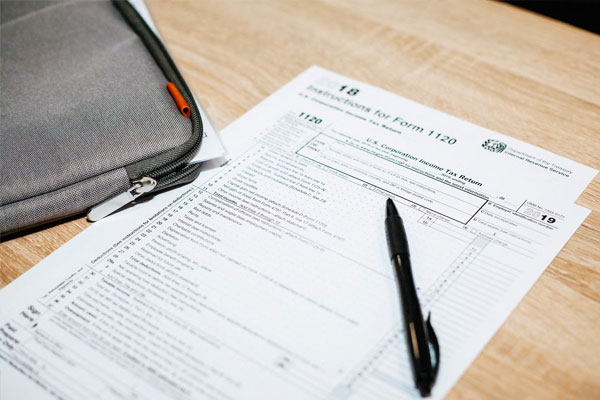
I feel pretty comfortable storing all other important and personal documents as digital files. Everyone has a different comfort level with virtual storage so it really just comes down to what you want and need!
Designate A Space For Organizing Paperwork

After going digital with the files of your choice, you’ll need a holding place for the paper copies you decided to keep. It’s important to create a paperwork organization system you can use actively, not just retroactively. You always want to ensure your paper storage system is out of the way and doesn’t cause paper clutter to increase.
 Whether you use a file cabinet, a box or container, files in a drawer, or a file folder or file stand, you want to choose a method of storage that makes it easy for all your incoming paperwork to go directly into its holding place.
Whether you use a file cabinet, a box or container, files in a drawer, or a file folder or file stand, you want to choose a method of storage that makes it easy for all your incoming paperwork to go directly into its holding place.
Keeping messy spaces decluttered is about creating spaces for the clutter to go so it doesn’t pile up in the first place. You want to develop a system where your mail, bills, and documents go directly from the mailbox, fax machine, or office and into a designated storage spot.
Devise A Plan To Declutter Paper Regularly

With any decluttering mission, the best way to wrap up is to create a plan to make the decluttering process a regular habit. Organizing and decluttering paperwork and files is way easier in smaller, digestible chunks than after your paper clutter has already piled up.
The best way to make an action into a habit is to create a schedule. In my own life, I have a few designated days every few months that I devote to decluttering different sections of my house. My office and paperwork are included in that.
Tips To Organize Paper Clutter By Category

The key to organizing excess paper clutter is creating a place for everything and keeping everything in its place. Instead of just throwing your mail and bills all in one pile, create an itemized system for each category of clutter. This will help you to best evaluate which paper files you need to keep, which ones you can make digital, and which ones you can toss altogether.
Ideas For Decluttering Mail

When it comes to knowing how to organize mail, there are several methods decluttering experts like to go with. In my opinion, the best mail organization method is to sort incoming mail into five categories using paper trays.
Five Categories For Sorting Mail
- Time-sensitive mail
- Mail to keep, no action needed
- Documents to be scanned, then tossed
- Recyclable mail
- Mail to shred
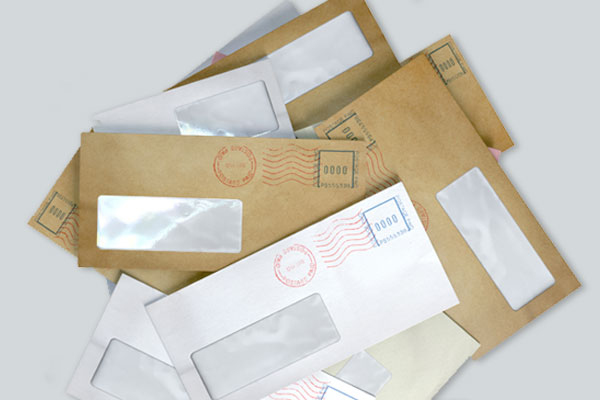
Again, when discarding paperwork, you want to recycle the mail that isn’t private or traceable back to your identity. If the mail contains private information and you don’t need it long-term, shred away.
With mail I’m keeping, I have one paper tray for time sensitive mail that has an actionable task attached to it. This includes things like bills I need to pay, mortgage information, tax notices, invitations, and more. I have a separate paper tray for mail I need to store but don’t need to do anything with. Finally, I have a third tray for mail that I plan to scan, turn into a virtual PDF, then discard later.
Tips To Declutter Bills And Tax Documents

When trying to decipher which documents I truly need to keep, I think through how often I need to access them and how much pushback I’d receive if I didn’t have the document. It’s smart to keep all of your financial documents together in one storage space, file cabinet, or organizer, so that all money-related files are easily accessible at once.
In the digital age, there are lots of ways to store files. Many important financial documents are stored on online accounts and don’t necessarily need to be printed.
Bill And Tax Document Decluttering Tips
Have Access To These Documents Forever
- Tax returns
- Legal contracts
- Insurance claims
- Business contracts
Have Access To These For Five Years Or More
- Tax returns and supporting documents
- Mortgage contracts
- Property appraisals
- Receipts for major purchases and home improvements
- Annual retirement and investment statements
Have Access To These For One Year Or Less
- Bank or credit union statements
- Credit card statements
- Utility bills
- Insurance policies
- Important receipts
Organizing Medical Documents And Personal Paperwork

There are some documents you’re going to want to keep with you for easy access when doing things like going to a new doctor, applying for a passport, or applying for a job. Having all of your medical documentation and personal paperwork in one place will make it a lot easier to have quick and easy access to those files.
I have a “life binder” where I keep hard copies of all of my medical records and personal documentation. As far as decluttering goes, I only keep hard copies of the documents I think I may physically need.
Put These Documents In Your Life Binder
- Birth, death, and marriage certificates
- Adoption records
- Citizenship and military discharge papers
- Driver’s license
- Passport
- Social Security card
- Immunization records and medical history
- Vaccine cards
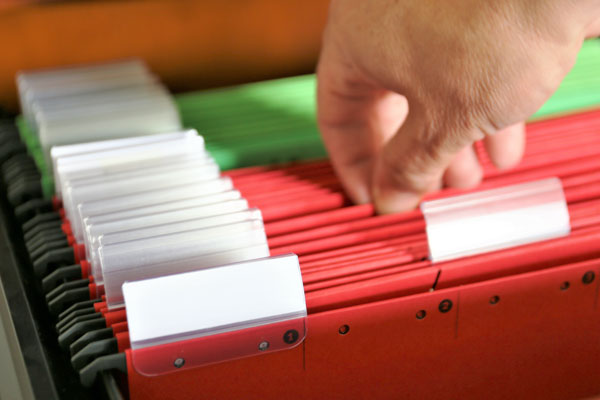
One smart tip with these high-priority documents is to put the original copies in a fireproof safe and keep scanned copies or PDFs in your three-ring “life binder.” This way, if you were to misplace or lose your binder, you wouldn’t lose everything else too.
Your Turn!
- When will you decide to tackle the paper clutter in your home office?
- What systems will you employ to declutter paperwork regularly?



Leave a Reply